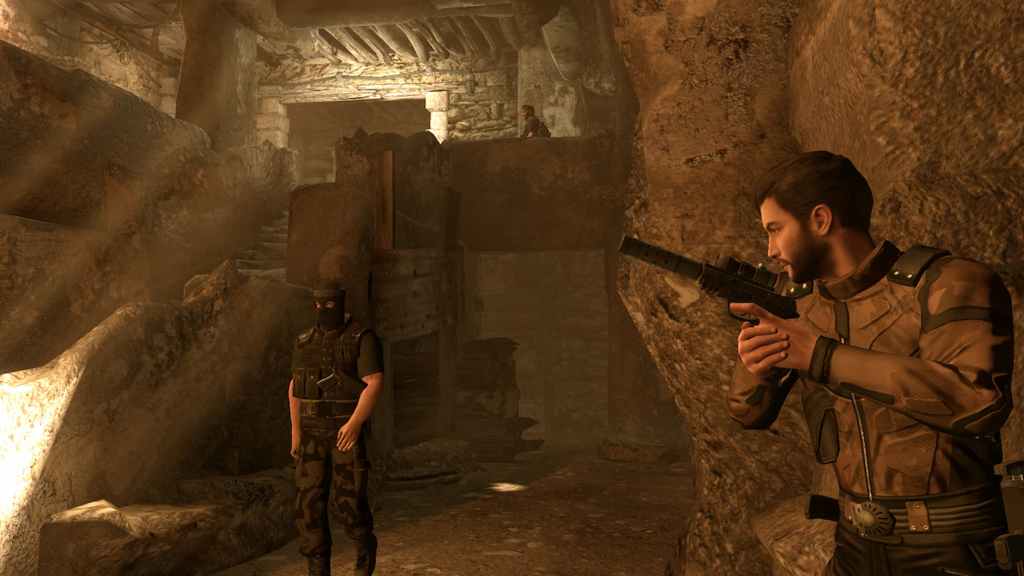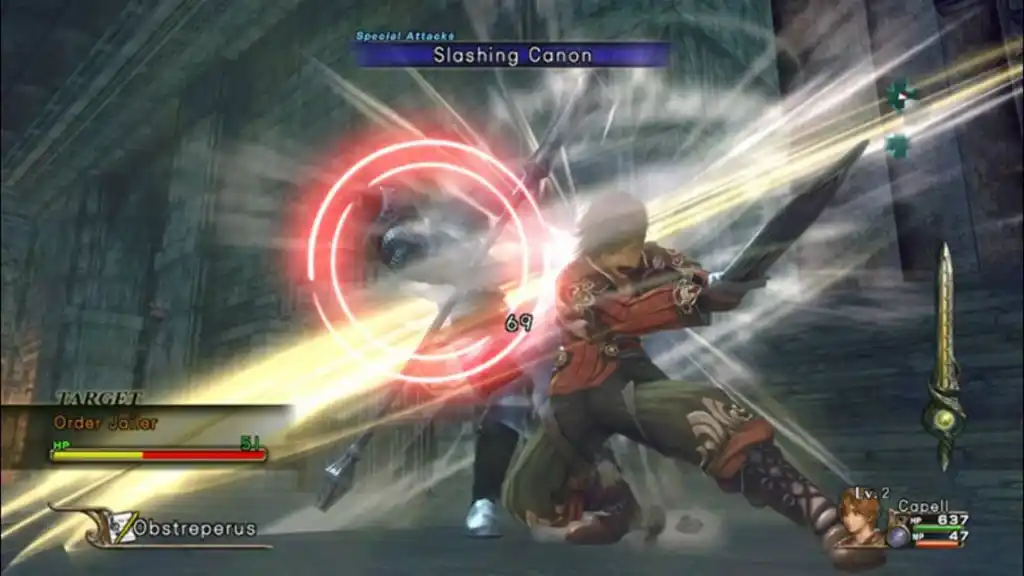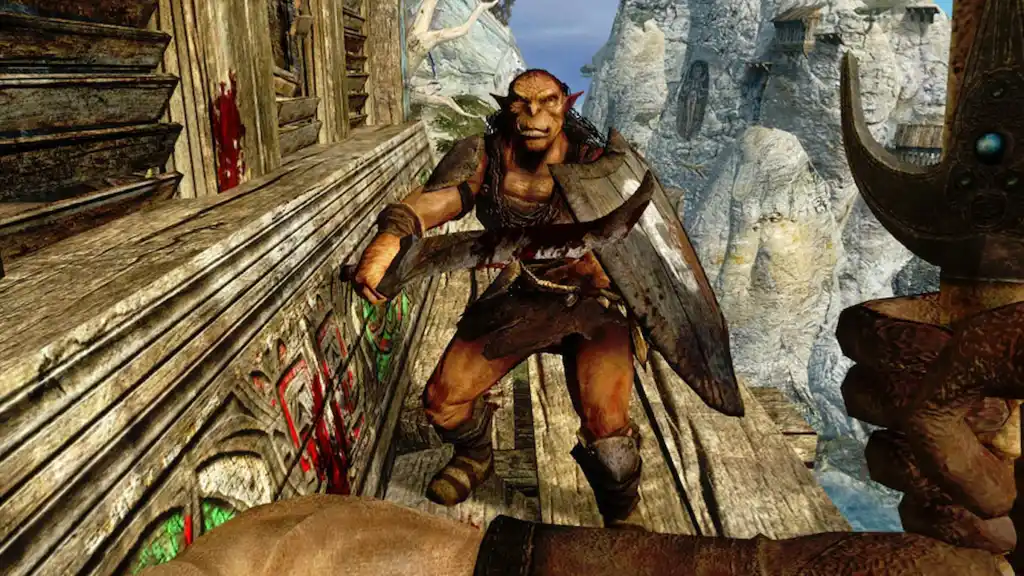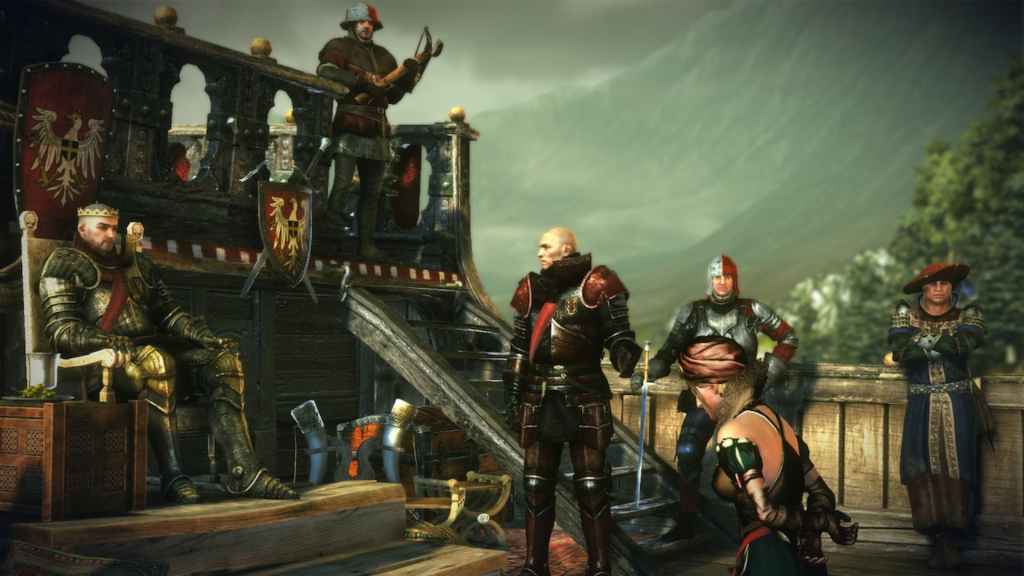The Xbox 360 era was a golden age for role-playing games, a period where developers experimented boldly with mechanics, storytelling, and world-building. From sprawling open worlds to intricate combat systems, the console hosted an array of RPGs that offered unique experiences for fans hungry for adventure. Yet, not every standout game received the lasting recognition it deserved. While franchises like Mass Effect, The Elder Scrolls, and Dragon Age continue to dominate discussions, many other RPGs quietly delivered memorable experiences but have since faded from the collective memory of gamers.
Videos by ComicBook.com
These forgotten gems deserve a second look. They brought innovation, style, and ambition to the table, whether through narrative depth, inventive gameplay mechanics, or distinctive artistic vision. Revisiting these titles today, you can see why they were special, even if time has pushed them into obscurity. Below are five Xbox 360 RPGs that defined their era but are rarely mentioned in conversations about the console’s best RPGs.
5) Alpha Protocol

Alpha Protocol, developed by Obsidian Entertainment, was ambitious from the start. It blended espionage with traditional RPG mechanics in a way that felt unique for its time. Released in 2010, it offered players an experience reminiscent of a spy thriller, where every dialogue choice and relationship decision could affect the narrative. The game’s focus on branching storylines and moral ambiguity was reminiscent of tabletop role-playing experiences, allowing players to define the personality and allegiances of protagonist Michael Thorton.
Combat in Alpha Protocol was a hybrid of real-time and cover-based shooting mechanics, which, while clunky at times, pushed the boundaries of what RPG combat could feel like outside fantasy settings. Coupled with its sophisticated dialogue system that relied on timing, tone, and context, the game rewarded patience and strategic thinking. Players could spend hours replaying missions to explore different narrative outcomes. A single decision could radically alter relationships or mission success.
Despite its ambition, Alpha Protocol struggled with inconsistent animations and technical hiccups at launch, which prevented it from achieving mainstream acclaim. However, its story depth, espionage mechanics, and replayability make it a hidden gem, particularly for RPG fans who crave moral complexity and consequences-driven storytelling and gives a good look at some of Obsidian Entertainment’s early work.
4) Blue Dragon

Blue Dragon, developed by Mistwalker and released in 2007, carried a unique appeal. It combined classic JRPG sensibilities with a distinctive art style by Dragon Ball creator Akira Toriyama. Unlike many RPGs of the gritty Xbox 360 era, Blue Dragon emphasized whimsical storytelling, turn-based combat, and charming characters, making it accessible yet deep. Its cel-shaded visuals gave the game a timeless quality, allowing it to stand out among more graphically grounded RPGs years after release.
One of the game’s strongest features was its strategic combat system. Players could summon shadows, magical creatures representing different abilities, and position them tactically during battles. Each shadow had unique skills, and mastering their combinations was essential for success in tougher encounters. Coordinating a team of four shadows to defeat late-game bosses often gave players a true sense of accomplishment when a strategy finally clicked.
While Blue Dragon didn’t reinvent the wheel, it succeeded in crafting a joyful, narrative-driven RPG experience. Its charm lay in its balance between lighthearted storytelling and surprisingly challenging combat. It’s the kind of game that evokes nostalgia for the era’s JRPG experimentation, reminding players that ambition doesn’t always need complex moral dilemmas to be memorable.
3) Infinite Undiscovery

Infinite Undiscovery, released by tri-Ace in 2008, was an ambitious attempt to merge real-time action with RPG mechanics. Set in a sprawling fantasy world threatened by mysterious dark forces, the game placed players in the role of Capell, an ordinary man thrust into extraordinary circumstances. Its story explored themes of heroism, responsibility, and sacrifice while encouraging exploration and strategic thinking.
The game’s real-time combat system was one of its most distinctive features. Players could issue commands to a party of up to three characters, blending real-time attacks with tactical decision-making. Timing, positioning, and synergy between party members were crucial, creating intense battles that demanded both planning and reflexes. Experimenting with different party compositions allowed players to find combinations that suited their playstyles and goals. Mastering these made every encounter feel like a puzzle.
What made Infinite Undiscovery memorable was its sense of scale and urgency. Unlike other RPGs that allowed players to linger endlessly in safe zones, this game often pushed the narrative forward with timed events and evolving world states. Though criticized for pacing issues and occasional camera problems, it remains a noteworthy experiment in action-RPG hybridization, demonstrating tri-Ace’s willingness to push genre boundaries on the Xbox 360.
2) Dark Messiah of Might and Magic

Dark Messiah of Might and Magic, released in 2006 by Arkane Studios, took the Might and Magic universe in a radically different direction. It ditched third-person perspectives and party-based combat that many RPGs of the time used for a first-person action RPG focused on single-character combat and environmental interaction. Players controlled Sareth, a young hero navigating a dark and dangerous fantasy world filled with magic, monsters, and treachery.
The game’s combat was a standout element. It combined melee and ranged attacks with physics-driven interactions, allowing for creative solutions to encounters. Players could push enemies off ledges, set traps, or use spells to manipulate the environment. These mechanics made each fight feel dynamic and visceral. Players could come up with combat solutions on the fly, using spells and environmental objects to quickly wipe out foes with the strategy.
Beyond combat, Dark Messiah emphasized exploration and choice. Players could approach scenarios stealthily, aggressively, or using magic in inventive ways. The game’s immersive level design and tactical flexibility created memorable moments that are rare in RPGs even today. While it didn’t achieve widespread fame, its innovative approach to action RPG combat remains influential, particularly for fans seeking something more physically interactive and grounded than typical fantasy RPGs.
1) The Witcher II: Assassin of Kings

Of all the Xbox 360 RPGs that flew under the radar, The Witcher II: Assassin of Kings stands out as the most enduring. Released in 2011, this sequel to The Witcher built upon the rich lore and morally complex storytelling that defined Andrzej Sapkowski’s novels while introducing more intricate gameplay systems. Players took control of Geralt of Rivia, navigating a world filled with political intrigue, morally gray decisions, and high-stakes consequences.
The game’s narrative structure was groundbreaking. Choices made early in the game could drastically alter the story’s direction, leading to multiple branching paths and endings. Seemingly small choices could completely change the factions players interacted with and the allies they could trust. That level of consequence, combined with the game’s mature storytelling, made the world feel alive and responsive.
Combat in The Witcher II was another highlight. Blending swordplay with magic signs, alchemy, and tactical positioning, encounters required both preparation and reflexes. Unlike many RPGs of its era, it demanded that players think ahead, which potions to craft, which spells to prepare, and when to engage enemies versus avoid them. The game’s rich visual design, atmospheric soundtrack, and political intrigue combined to create a deeply immersive experience that remains compelling even years later.
Despite critical acclaim, The Witcher II never achieved the mainstream recognition it deserved on consoles. Many players discovered the series later through The Witcher III: Wild Hunt, but revisiting Assassin of Kings reveals a meticulously crafted RPG that balanced narrative depth, player choice, and challenging combat.
What do you think? Leave a comment below and join the conversation now in the ComicBook Forum!









